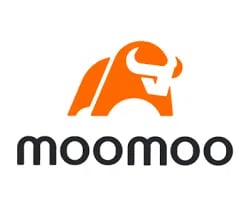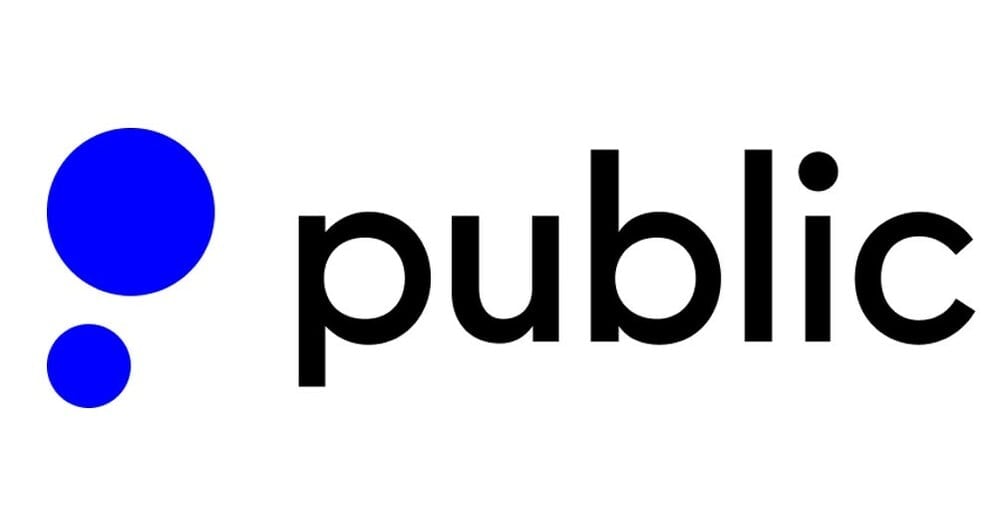Best Brokers for After-Hours Trading in 2025
Here's when and how to trade stocks after hours, and the best brokers to help you do it.
Many or all of the products on this page are from partners who compensate us when you click to or take an action on their website, but this does not influence our evaluations or ratings. Our opinions are our own.
The investing information provided on this page is for educational purposes only. NerdWallet, Inc. does not offer advisory or brokerage services, nor does it recommend or advise investors to buy or sell particular stocks, securities or other investments.
What is after-hours trading?
After-hours trading is exactly what it sounds like: When you trade stocks or other investments after the stock market closes at 4:00 p.m. Eastern time.
There is also a trading session before the market opens at 9:30 a.m. Eastern, called premarket trading. The two combined make up extended-hours trading.
Off-hours trading can be convenient because it allows you to invest when the market isn't open. But the lower volume of trading also creates pitfalls such as higher volatility.
Not all brokers offer after-hours trading, so if this is a feature you’re interested in, you’ll want to figure out if it's available up front. The best broker for after-hours trading will depend on your needs. For example, Interactive Brokers received a 5-star overall score, and it also earned the best possible score in the after-hours trading category. That being said, Interactive Brokers may not be the best fit for beginners. If you're looking for a beginner-friendly broker that also allows you to trade outside of traditional hours, Fidelity has excellent educational resources and an easy-to-use app.
All the brokers listed below score well for their pre-market and after-hours trading windows and have an overall score higher than 4.5 — they're the best of the best, with the largest after-hours trading windows. For a full list of each broker's specific trading hours, see the table below.
Why trust NerdWallet
Our deep, independent analysis of online brokers cuts through the details to find and evaluate the information investors want when choosing a stock trading account.
Over 60 investment account providers reviewed and rated by our expert Nerds.
More than 50 years of combined experience writing about finance and investing.
Hands-on testing of the account funding process, provider websites and stock trading platforms.
Dozens of objective ratings rubrics and strict guidelines to maintain editorial integrity.
Best Brokers for After-Hours Trading in 2025
| Broker | NerdWallet rating | Fees | Account minimum | Promotion | Learn more |
|---|---|---|---|---|---|
5.0/5 | $0 per trade | $0 | None no promotion available at this time | Learn moreon partner's site on Interactive Brokers' website | |
5.0/5 | $0 per trade | $0 | Get 20 free fractional shares (each valued up to $3,000) when you open and fund an account with Webull. | Learn moreon partner's site on Webull's website | |
4.8/5 | $0 per online equity trade | $0 | None no promotion available at this time | Learn moreon partner's site on Charles Schwab's website | |
4.7/5 | $0 | $0 | Earn 8.1% APY on your uninvested cash for 3 months + up to 60 Free Stocks with qualified deposits. Terms & Conditions apply. | Learn moreon partner's site on Moomoo's website | |
4.6/5 | $0 | $0 | Earn up to $10,000 when you transfer your investment portfolio to Public. | Learn moreon partner's site on Public's website | |
5.0/5 | $0 per trade for online U.S. stocks and ETFs | $0 | None no promotion available at this time |
Fees
$0
per trade
Account minimum
$0
Promotion
None
no promotion available at this time
Our Take
Commission-free stock, options and ETF trades.
Large investment selection.
Strong research and tools.
Huge selection of no-transaction-fee mutual funds.
High order execution quality.
High minimum to earn interest on uninvested cash.
Website can be difficult to navigate for beginner investors.
Don't let the name fool you: IBKR Lite offers commission-free stock trading (including international trade capabilities), more than 19,000 mutual funds, and a well-featured platform.
Fees
$0
per trade
Account minimum
$0
Promotion
Get 20 free fractional shares (each valued up to $3,000)
when you open and fund an account with Webull.
Our Take
Commission-free stock, options and ETF trades.
Easy-to-use platform.
Advanced tools.
High interest rate on uninvested cash.
High order execution quality.
No mutual funds.
Separate app required to trade crypto.
Webull will appeal to the mobile-first generation of casual investors with its slick interface for desktop and mobile apps. The brokerage also delivers an impressive array of tools for active traders and a wide investment selection, including stocks (plus fractional shares), options, ETFs, crypto, commodities and futures. However, it lacks access to mutual funds.
Fees
$0
per online equity trade
Account minimum
$0
Promotion
None
no promotion available at this time
Our Take
Commission-free stock, options and ETF trades.
Five trading platforms with no minimums or fees.
Access to thinkorswim platforms.
Extensive research offerings.
Large fund selection.
Low interest rate on uninvested cash.
Charles Schwab has earned its strong reputation: The broker offers high-quality customer service, four free trading platforms, a wide selection of no-transaction-fee mutual funds and $0 commissions for stocks, ETFs and options.
Fees
$0
Account minimum
$0
Promotion
Earn 8.1% APY
on your uninvested cash for 3 months + up to 60 Free Stocks with qualified deposits. Terms & Conditions apply.
Our Take
Commission-free stock, ETF and options trades.
No contract fee on equity options.
Popular, easy-to-use app.
High yield on uninvested cash.
Low margin rates.
No mutual funds or bonds.
Lower than average execution quality.
Moomoo offers free stock and option trades in an easy-to-use trading platform that charges low margin rates. It's not built for passive retirement investors — IRAs aren't supported, nor are mutual funds — but there's a lot to like about Moomoo for more active traders.
Fees
$0
Account minimum
$0
Promotion
Earn up to $10,000
when you transfer your investment portfolio to Public.
Our Take
Commission-free stock, options and ETF trades.
Rebates for trading options.
Easy-to-use signup and trading interface.
High interest rate on uninvested cash.
No mutual funds.
Lack of tools (e.g. customizable investment screeners).
Public provides free stock and ETF trades, pays you to trade options, and gives traders access to crypto and bonds, as well as a high-yield cash account. The platform will appeal to traders looking for a low-cost options broker and access to many types of assets.
Fees
$0
per trade for online U.S. stocks and ETFs
Account minimum
$0
Promotion
None
no promotion available at this time
Our Take
Commission-free stock, options and ETF trades.
Large selection of research providers.
Strong customer service.
Expense-ratio-free index funds.
Highly rated mobile app.
High interest rate on uninvested cash.
Relatively high broker-assisted trade fee.
Fidelity is one of the largest and most well-established brokerages, and it shows. Fidelity charges no trading commissions, offers an extensive set of no-fee, no-minimum index funds. It also stands out for its top-notch research tools, a renowned trading platform and very strong customer service.
When exactly is after-hours trading?
Each broker defines "after-hours" differently. Here's each broker's specific hours.
Broker | Hours |
|---|---|
Interactive Brokers | IBKR Lite: 7:00 a.m. EST to 8:00 p.m. EST. IBKR Pro: 4:00 a.m. EST to 8:00 p.m. EST. Overnight trading: 8:00 pm EST to 3:50 a.m. EST, Sunday through Friday nights (select stocks and ETFs). |
Fidelity | 7:00 a.m. to 8:00 p.m. EST. |
Webull | 4:00 a.m. to 8:00 p.m. EST Monday through Friday. |
Charles Schwab | 7:00 a.m. to 8:00 p.m. EST. Overnight trading is available 24/5. |
Moomoo | 4:00 a.m. to 8:00 p.m. EST Monday through Friday. |
Public | 8:00 a.m. to 8:00 p.m. EST. |
How after-hours trading works
Trading during extended hours takes place when the major exchanges are closed, so orders are placed through computerized trading systems, or electronic markets.
This system essentially matches buy and sell orders — if you’re after 50 shares of a stock for $50 a share, and there’s someone out there looking to unload that many shares at that price, you’ll be matched and your order will be filled. If the system can’t find a match, the order will be canceled or held until regular trading hours.
Because of the lower volume of orders, there are different rules for after-hours trading. These rules are typically set by brokers and include such matters as the hours trading is available and the order types allowed during those hours. For example, orders are often required to be limit orders, which means an order will be filled only at a certain price or better.
The pros, cons and risks of after-hours trading
The main advantage is clear: The stock market keeps pretty tight banker’s hours, and after-hours trading means you’re not limited to that window. It allows you to react to events that occur after 4:00 p.m. or before 9:30 a.m. Eastern, including earnings releases or monthly jobs reports.
The negatives here mostly have to do with the risks of this trading strategy, of which there are many. The stock market is inherently risky, of course, and by actively stock trading, you’re coming to terms with that risk. But after-hours trading both enhances the standard risks of the market and introduces additional risks.
The major risks of after-hours trading are:
Low liquidity. Trade volume is much lower after business hours, which means you won’t be able to buy and sell as easily, and prices are more volatile.
Wide bid-ask spreads. This piggybacks on the above: Because trading volume is low, you might see lower bids for your sell orders, meaning an order could go unfilled or it could be filled at a price below what you could have earned during normal hours.
Order restrictions. As mentioned above, most brokerage firms allow only limit orders during extended hours, which means your orders will be executed only if they are matched with a buyer or seller at the price you’ve set or better. That leaves your orders at risk of not being executed at all.
Bigger fish. While stock trading in general is available to anyone with a brokerage account, casual investors don’t often play in the after-hours pond. Instead, it’s full of professional traders. These investors may have more practice, more money and more information than you, which puts them at an advantage and you at a disadvantage.
» Learn more: What is premarket trading?
Should you trade after hours?
After-hours trading is for investors who are comfortable with a high level of risk. If you're jumping in, consider starting with a small amount of money that you could afford to lose.
In general, most stock investors are better off sticking to a simple buy-and-hold formula that involves picking a few companies or funds you believe in and staying in for the long haul — no after-hours work required.
Last updated on June 12, 2025
Methodology
NerdWallet's ratings for brokers and robo-advisors are weighted averages of several categories, including investment selection, customer support, account fees, account minimum, trading costs and more. Our survey of brokers and robo-advisors includes the largest U.S. providers by assets under management, plus notable and/or emerging players in the industry. Factors we consider, depending on the category, include advisory fees, branch access, user-facing technology, customer service and mobile features. The stars represent ratings from poor (one star) to excellent (five stars). Ratings are rounded to the nearest half-star.





